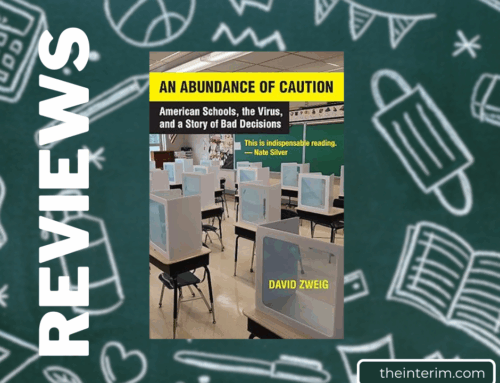 When it was released in 1976, the movie Network was publicized as an “outrageous” comedy, a satire that imagined a worst case dystopia of the near future, based on the dismal precedents being set in the horrid ‘70s. It’s a sign of how far past mere movie satire we’ve gone that it’s been turned into a musical on the London stage, starring Bryan Cranston of Breaking Bad fame.
When it was released in 1976, the movie Network was publicized as an “outrageous” comedy, a satire that imagined a worst case dystopia of the near future, based on the dismal precedents being set in the horrid ‘70s. It’s a sign of how far past mere movie satire we’ve gone that it’s been turned into a musical on the London stage, starring Bryan Cranston of Breaking Bad fame.
The film won four Oscars just months before Star Wars was released, so it’s tempting to remember it as the last vital moment of a movie industry that saw intelligent adults at the core of its audience. Forty years later, the film is frequently referenced as an uncanny prediction of the future of the news media and western culture in general.
Writing about British politics in The Guardian recently, Matthew D’Ancona found it useful to evoke Network, saying that, “Four decades on from the original movie, its warning about the power of technology to weaponise populism seems more powerful and topical than ever.” He was, of course, writing about Brexit and the election of Donald Trump — two recent events that people who either support or oppose inevitably (and mistakenly) conflate as similar expressions of populism.
“I’m mad as hell and I’m not going to take it anymore!” was the film’s major contribution to popular culture, the outraged cry of mentally unravelling news anchor Howard Beale, played by Peter Finch. In the film’s key scene, wild-eyed Beale implores his viewers to fling open their windows and scream it, in lieu of anything like a solution to the problems besieging America at the mid-point of the ‘70s.
Like any baleful jeremiad about popular culture, corporate America, the unreliable news media, and the unworthiness of the common man in general, Network is the sort of text that anyone can find useful to bolster a rant or give weight to a column that’s meant to feather their nest for some potential “I told you so.” Thanks to writer Paddy Chayefsky’s machine gun misanthropy, you can find someone saying something suitably grim about almost any topic anywhere in its two hour running time.
Last year, the BBC even ran an article on its website praising the “eerily prescient” film on its 40th anniversary, where writer Nicholas Barber went so far as to say that that the hero of Network wasn’t William Holden’s Max Schumacher, grumpily defending the integrity of his news department, but Faye Dunaway’s Diana Christensen, the young, callous and ambitious network executive who’s happy to turn the six o’clock news into a sensationalist variety show built around Beale’s ranting.
“Played with breezy confidence by the searingly beautiful Dunaway,” Barber writes, “Diana is strong, honest, open about her sexual proclivities, and driven by a buzzing enthusiasm for her job. She is a liberated 1970s career woman, as well as a classic screwball heroine: the missing link between Rosalind Russell’s Hildy in His Girl Friday and Tina Fey’s Liz Lemon in 30 Rock.”
“It’s true that she is happy to profit from Howard’s instability and, when his ratings founder again, she has no qualms about arranging his assassination. But, well, nobody’s perfect.”
Barber’s article is proof that there’s no idea so daft or repulsive that somewhere, sometime, a journalist (or an academic) won’t call it a good thing.
I’ve enjoyed Network since I first saw it — ironically on television, during one of those prime time prestige time slots that TV networks used to boost viewership in the long-gone era before cable. It’s a scathing, seething protest against some vast lowering of standards, full of cultural references that nobody would dare put in the mouth of a movie or TV character today. Even Dunaway’s Diana, the “TV baby” who’s a harbinger of the dumbing down of society, peppers breathless monologues with mentions of Savonarola and the Oberammergau passion plays.
But its pyrrhic defense of the Max Schumacher’s old school television news department, a lesser but still esteemable peer of competing networks with revered news anchors like Walter Cronkite and John Chancellor, is wholly unbelievable, especially if you had the misfortune to live through the ‘70s.
In a bonus feature included on the 2006 DVD reissue of Network, Walter Cronkite recalls that, even in the mid-1970s, national evening news shows like the ones that he, Chancellor, and the fictional Beale would have helmed were relatively new things, a format that technologically struggled to define itself through the 1950s and early 1960s before settling into the half hour dinnertime slot around the time of the Vietnam War.
In Network, Beale and Schumacher constantly reminisce about their days as junior newsmen, invoking the hallowed name of Edward R. Murrow more than once. Max’s losing fight to keep his money-losing news department at arm’s length from the bottom line priorities of the network is the basic conflict of the film.
But even Dunaway’s Diana points out to the truculent Max that his show, with barely two minutes of hard news hidden amidst puff pieces, sensationalism, and “human interest” stories, is hardly a paragon of stern objectivity. Howard Beale is a character more comic than tragic, and his willingness to become the voice of whatever notion his late middle-aged despair, or the Mephistophelean owner of the network (a fantastic, scenery-devouring turn by Ned Beatty) puts there evokes that derogatory description of news anchors as “empty suits.”
It has to be remembered that Network was a hit with the same audiences that laughed every week at the pompous, dimwit newsreader Ted Baxter on the Mary Tyler Moore Show.
The vacuous and pliable news anchor, more concerned with goosing viewers’ emotions and playing internal network politics, was refined onscreen 10 years after Network with Broadcast News — a much better film about the decline of TV news than Network.
CNN hit the air between the release of the two films and Network, for all of its retrospective prescience, couldn’t predict the rise of cable TV or cable news, and Broadcast News glaringly doesn’t acknowledge the competition network news was getting from 24/7 news channels.
Most of all, though, watching Network today is a depressing reminder of how really awful TV was in the 1970s. It wasn’t just the pomposity of TV news programs but the lack of choice or variety inherent in an age of three national networks and their affiliates filling long daytime slots with game shows and soap operas.
Their only competition was a handful of cash-strapped local channels filling airtime with old movies and syndicated comedies and westerns from the ‘50s and ‘60s, supplemented with homemade programming filmed on sets with walls that wobbled when someone slammed a door.
If you lived in a big city you picked and chose from their schedules with a well-marked TV guide and no VCR or time-shifting cable box. If you lived in the boonies, you were at the mercy of station wattage and atmospherics.
We can complain about “500 channels and nothing on” all we want, but the fact is that TV has never been better, though I doubt if anyone would claim that TV news, either on the networks in the evening or all day on the cable channels, is one of the reasons. Network TV news was a crippled beast when Network won its Oscars and a dying animal when Broadcast News got seven nominations, losing to Moonstruck, Wall Street and The Last Emperor — all movies that would never get made today unless they found backers at HBO, Netflix, AMC, IFC, Amazon or Hulu.
It’s hard not to conclude that the people who called Network prescient were usually the sorts of people who believed that TV news told hard truths and that newspapers were signs of a healthy democracy. And it’s a worthwhile rule of thumb that whenever something is called prescient, it’s usually because it’s predicting something as dated as the evening news.




